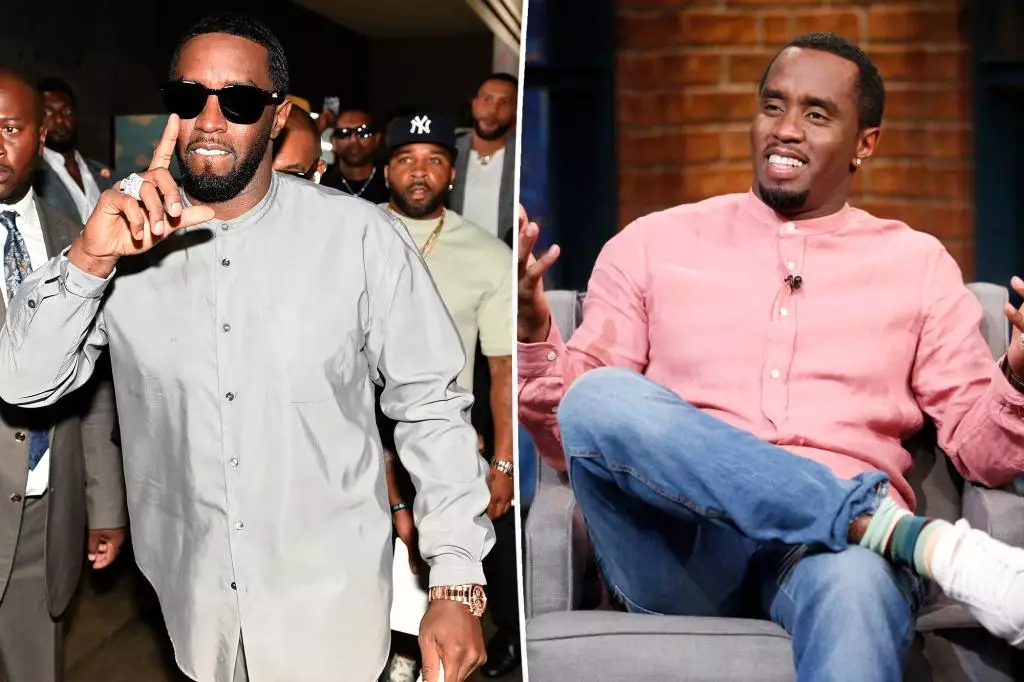In the recent headlines, Sean “Diddy” Combs has found himself ensnared in a web of serious allegations that have sparked intense public and legal scrutiny. The renowned music mogul faces charges related to sex trafficking, racketeering, and other egregious offenses. Prosecutors argue that his actions while incarcerated reveal a blatant disregard for legal protocols and an attempt to manipulate the justice process. This article delves into the implications of these accusations and the troubling patterns that they suggest.
According to court documents, Sean Combs is accused of “corruptly influencing” his sex-trafficking trial from within the confines of the Metropolitan Detention Center (MDC) in Brooklyn. Prosecutors claim that Combs has consistently bypassed prison regulations by communicating via the phone accounts of other inmates—an act suggesting calculated efforts to conceal conversations from monitoring authorities. Utilizing at least eight inmates’ accounts to evade detection raises questions about both his ethical behavior and his understanding of the legal system.
The allegations further state that Combs has financially compensated these inmates, utilizing payment apps and commissary deposits as part of his strategy to maintain communication with individuals on the outside. This behavior not only undermines the integrity of the prison system but also paints a disturbing portrait of someone who appears to believe he is above the law. Additionally, his alleged instructions to family and legal advisors regarding three-way calling only serve to complicate the legal ramifications of his actions, demonstrating a willingness to exploit loopholes for personal gain.
Beyond the confines of his jail cell, prosecutors argue that Combs has embarked on a calculated campaign to manipulate public perception of his predicament. An example cited in the legal filings includes the celebration of his recent 55th birthday, which was strategically showcased by his children on various social media platforms. This has led to suspicions that Combs is attempting to influence the jury pool in anticipation of his trial. The prosecutors argue that these orchestrated public relations efforts indicate not just a desire for sympathy but a direct effort to obstruct the legal proceedings.
Such claims reveal a troubling reality: when an individual of Combs’ stature faces criminal charges, the intersection of celebrity status and the judicial process becomes precarious. The delicate balance between a fair trial and the potential sway of public opinion raises critical questions about media influence and the role that social media plays in shaping narratives in high-profile cases.
Further deepening the shadows cast by the ongoing case, prosecutors allege that Combs has engaged in tactics that could be classified as blackmail. By supposedly attempting to threaten or manipulate victims and witnesses into silence or compliance, the gravity of his situation escalates. The characterization of these actions as attempts to “blackmail victims” paints a picture of a desperate man willing to go to extreme lengths to secure his freedom.
This notion of using intimidation tactics not only raises moral questions but also legal ones. If proven, such behavior could result in more severe penalties and a lasting impact on Combs’ legacy. The implications of witness tampering or coercion not only further complicate his existing charges but also highlight an unsettling dimension of how individuals may navigate the justice system when facing severe allegations.
As Sean Combs prepares for his trial scheduled to begin in May 2025, the allegations against him serve as a critical reminder of the complexities intertwined with celebrity culture, legal accountability, and the pursuit of justice. The gravity of the charges he faces demands serious attention, not just from the public but from the legal system at large.
In examining Combs’ actions, one must also consider the broader implications for societal perceptions of power, privilege, and ethical behavior. The allegations presented in this case raise significant questions—how should the legal system respond to those who seemingly operate above the law, and what standards must exist to ensure that justice is served equitably, regardless of personal status?
The evolving situation surrounding Sean “Diddy” Combs extends far beyond his individual actions. It speaks to systemic issues within the justice system, prison regulations, and the impact of celebrity on the legal proceedings. As the trial date approaches, it remains crucial to observe these developments with a sense of justice that transcends fame and fortune, underscoring the importance of accountability regardless of one’s societal standing.

